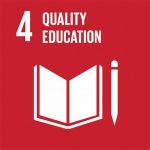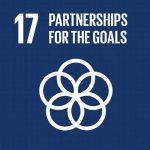
On the 17th of July, the Center for Southeast Asian Social Studies conducted the first CESASS Talk Series with the topic of Urban Future Development in Southeast Asia. The online event was conducted through Zoom with over 40 participants in attendance. The event featured four speakers: the Director of CESASS UGM, Prof. Dr. Rini Rachmawati, S.Si., M.T., CESASS Researcher, Dr. Arif Akhyat, M.A., Secretary of Asian Urban Research Association, Shippensburg University, Pennsylvania, Prof. George Pomeroy, Ph.D., AICP, and Senior Lecturer at Vietnamese-German University and Organizing Team of 16th Asian Urban Conference, Dr. Le Thi Thu Huong. The session was moderated by CESASS Researcher, Drs. Muhadi Sugiono., M.A.
The first speaker, Prof. Dr. Rini Rachmawati, S.Si., M.T., brought up the topic of Urban Geography and Urban Development in Southeast Asia. Prof. Rini’s presentation focused on four aspects: an overview of urban development, the regional geography of Southeast Asia, cities in Southeast Asia and smart cities, and urban future development in the region. From the presentation, urban development can be described as an effort to achieve better conditions for cities and solve their urban problems through urban planning with sustainable urban development as its end goal.
Prof. Rini dived into the effort of ASEAN in creating smart cities with the establishment of the ASEAN Smart Cities Network (ASCN) in 2018 with the primary goal of improving the lives of ASEAN citizens, using technology as an enabler. Focusing on the people, it adopted an inclusive approach to smart city development that respected human rights and fundamental freedoms. The networking of Smart Cities across ASEAN also contributed to enhancing mutual understanding across cultures.
Prof. Rini highlighted the four critical factors for Urban future development: Linkages among cities in Southeast Asia, making cities in Southeast Asia more liveable, achieving Smart cities in Southeast Asia, and the end goal of smart sustainable urban development in the region.
The second speaker, Dr. Le Thi Thu Huong, discussed Sustainable Urban Development in Southeast Asia. Dr. Huong opened her session by highlighting six critical concerns for sustainable urban development: efficient land use by effective land management, precautionary environmental protection, socially responsible and affordable housing, sustainable urban mobility management, development of local economy and participation, and regional cooperation. Dr. Huong also outlined that despite numerous urban settlement theories, they shared one central idea and ultimate goal: “achieving maximum development with minimum resource consumption and environmental impacts to ensure the well-being of both humans and the Earth.”
Dr. Huong then talked about the criteria for creating a sustainable city, where she went on to mention several factors, such as creating a sustainable society that should push for “social coherence and solidarity” and a “stable eco-system” for a sustainable urban environment. According to Dr. Huong, a sustainable society was essential to sustain human development that promotes social equity and social safety & security. While on the other hand, she debunked the stereotype that the most significant threat to a stable eco-system is poverty and argued that the rich were equally responsible for environmental degradation, as seen through their use of resources, tendency of overconsumption, and emissions they discharge.
The third speaker, Prof. George Pomeroy, enlightened the participants about Urban Planning in Southeast Asia. During his session, Prof. Pomeroy focused on the present and projected numbers, as well as the prospects and challenges, for Southeast Asia’s Future Urban Development. He started by highlighting that the nature of cities and urbanization in Southeast Asia is diverse, and that the region, like Asia at large, cannot be easily generalized. For example, in 2020, Singapore was 100% urban while Cambodia was only 24.2%, according to Envisaging the Future of Cities: World Cities Report 2022, which Prof. Pomeroy referred to.
During his presentation, Prof. Pomeroy highlighted Southeast Asia’s future urban development challenges, drawing on sources by James Tyner & Andre Ortega as well as Arfanuzzuman & Dahiya. Both sources noted the potential environmental challenges that the region may face in the future. Additionally, Tyner & Ortega identified continued challenges with traffic congestion and housing, as well as superficial changes from the increased incorporation in the global economy, and more profound structural changes due to the infusion of foreign capital. These structural changes have led to the emergence of a consumption-driven middle class. Arfanuzzuman & Dahiya also mentioned challenges with urban spatial growth, pressures on green space per capita, and groundwater depletion.
Prof. Pomeroy discussed the potential of dynamic growth through the emergence of a creative economy. This concept, as outlined by Richard Florida in his work “The Creative Class,” revolves around the “3Ts of economic development”: Talent, Technology, and Tolerance. These 3Ts have also contributed to the creation of the Global Creative Index. In his concluding remarks, Prof. Pomeroy highlighted selected key findings & key messages from “Envisaging the Future of Cities: World Cities Report 2022,” where among the “key issues that should be addressed in the transition to more sustainable futures” were inequality & social exclusion, and cultural diversity. He also mentioned that securing a greener urban future, including climate action is something that tends to be overlooked and needs to be taken into consideration.
The last speaker, Dr. Arif Akhyat, M.A., presented on the topic of Urban History of Southeast Asia, with a particular focus on the paradoxes that existed in colonial Java’s cities. His presentation, titled “Paradox in the City: Cities in Colonial Java,” began with a discussion on the different interest colonialists had in cities in colonial Java – political and socio-economic interests. Dr. Arif then highlighted how the emergence of landless social groups caused changes in the social structure, leading to the growth of migrant groups moving to the cities in search of jobs which resulted in rising social tensions. On the other hand, a new city elite emerged, which Dr. Arif viewed as a paradox of the time. He used Colonial Semarang as an example to illustrate the social class segmentation in the city at the time.
In conclusion, Dr. Arif highlighted that the failure to address social class divisions, along with the pressures of modernization, has prevented farmers (urban dwellers) from experiencing vertical mobility in their social status. As a result, they remain confined within the boundaries of an agrarian tradition which once defined them, unable to make significant progress beyond their current social standing. Dr. Arif emphasized that this marginalized and subsistence community is the product of a collective process that cannot be extricated from the city, despite the way modernity has isolated and estranged them.
To summarize, the CESSAS Talk Series #1 was a resounding success, with each of the four speakers presenting fascinating and insightful topics that got the audience reflecting on the history of Southeast Asia and peering forward to see the future prospects of Southeast Asia. Following the presentations, the Q&A session provided an opportunity for further discussion and debate, making the event a memorable and thought-provoking experience for all who attended.
It’s related to SDGs 4 (Quality Education), 11 (Sustainable Cities and Communities) and 17 (Partnerships for the Goals).



